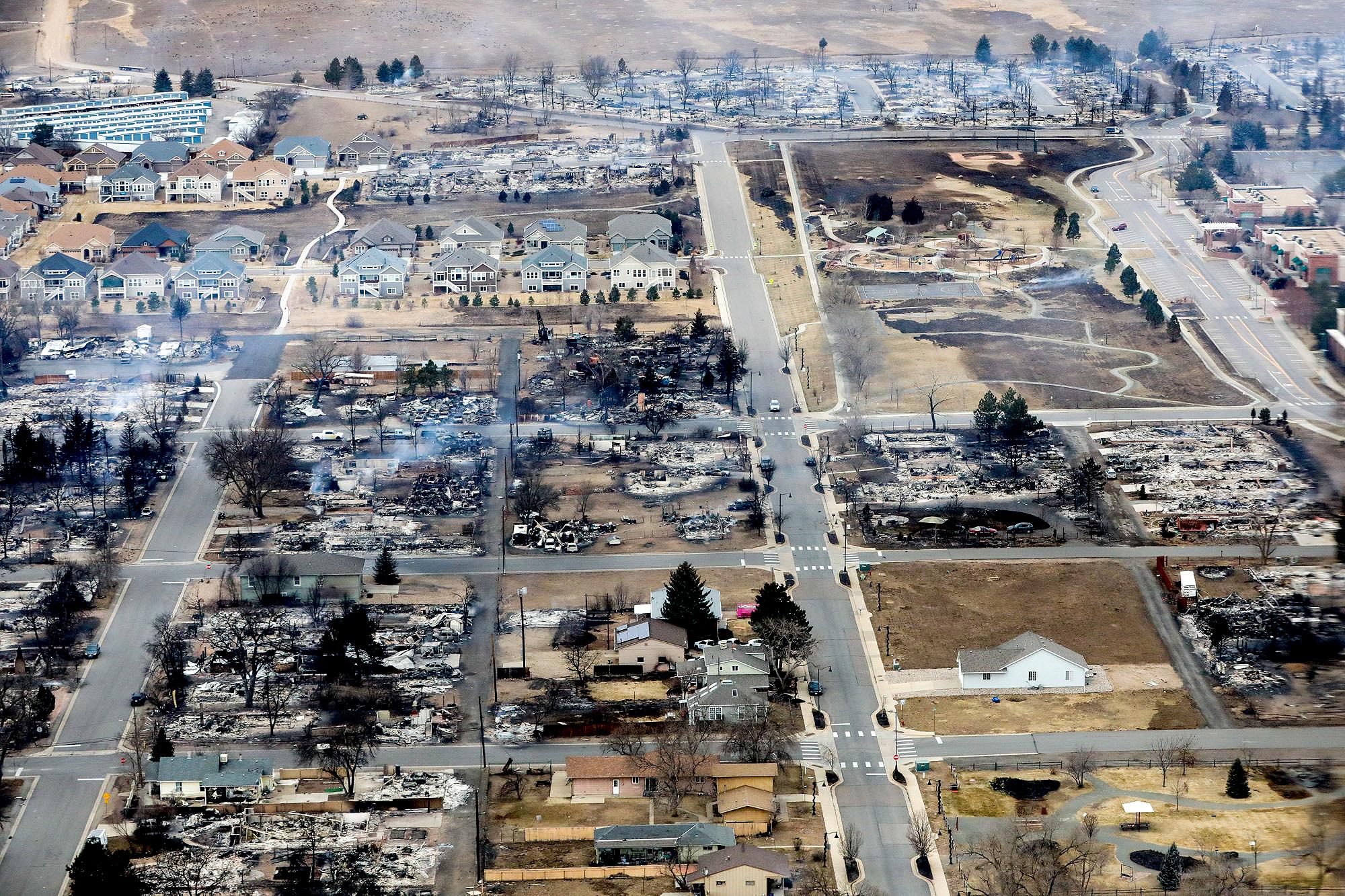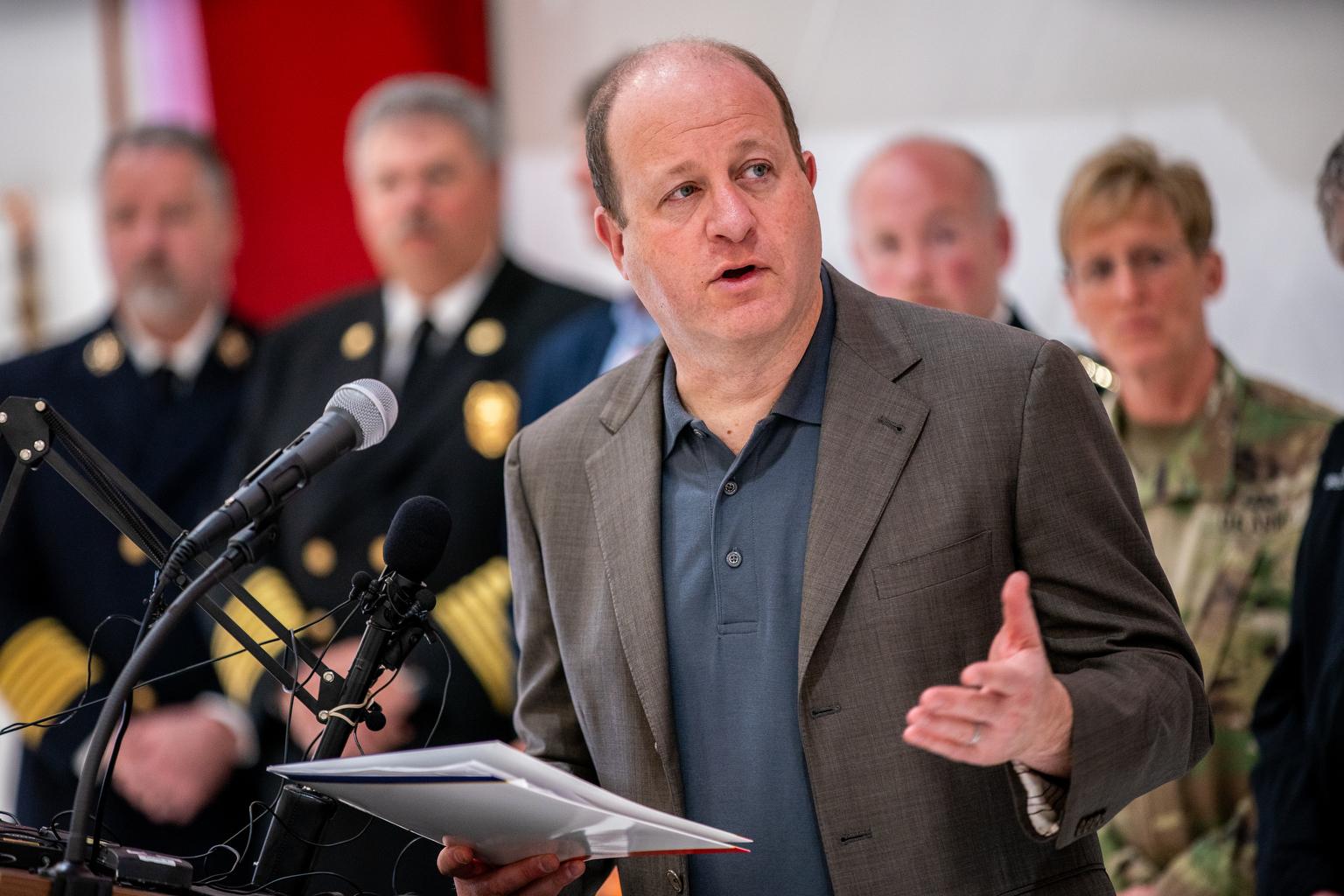
Updated 2:08 p.m.
Over 150 insurance companies and a pair of survivors have filed lawsuits against Xcel Energy seeking damages for the utility company’s role in the 2021 Marshall fire, Colorado’s most destructive wildfire.
The filings come a month after the Boulder County Sheriff’s Office released findings from its year-and-a-half-long investigation into the fire’s cause. A final report found the fire had two separate ignition sources — one of which was sparks from an Xcel Energy power line. Xcel has denied its equipment had any role in triggering the fire.
The Marshall fire destroyed over 1,000 homes in Superior and Louisville, causing over $2 billion in property damage.
While Boulder County officials said they found no reason to file criminal charges against the company, affected parties have been quick to turn to civil litigation. The utility company is already facing a slew of other lawsuits.
The two new complaints were filed over the last week in Boulder County District Court. The first comes from over 150 insurance companies that insured owners of property burned by the Marshall fire. It seeks an unspecified amount of money on the grounds of inverse condemnation and negligence.
“The inherent danger in electricity and Xcel Energy’s design of its Electrical Equipment materialized in an arcing event that was a substantial factor in causing and contributing to the spread of the Marshall fire,” the complaint said.
Another lawsuit was filed Monday by Edelson PC, a law firm with a specialized wildfire team that has worked on costly litigation over some of the country’s largest fires, including the 2020 Oregon Labor Day fire and the Camp fire in Paradise, Calif..
The Edelson complaint was filed on behalf of John Uridil and Julia Uridil, two Marshall fire survivors. The plaintiffs are suing over “negligence, willful and wanton conduct and negligent infliction of emotional distress requests damages for harm from the fire.” Edelson PC said Monday’s lawsuit is the first of many they plan to file.
Xcel Energy declined to comment on the complaints filed.
Neither of the two recent lawsuits have named Twelve Tribes, a religious group that owned the property where the other ignition source sparked, as a defendant.
Previous coverage:
- How humans start most of Colorado’s wildfires — and get away with it
- Large air tanker takes up residence in Colorado Springs to help fight potential wildfires this summer
- Photos, then and now: Revisiting the Marshall fire’s devastation one year later, as communities rebuild
- Most people who lost homes in the Marshall fire were underinsured, Colorado insurance regulators say
- We now know lightning didn’t spark the Marshall fire, but not much else is publicly known about the investigation
- Colorado adopts a new climate-minded statewide building code









